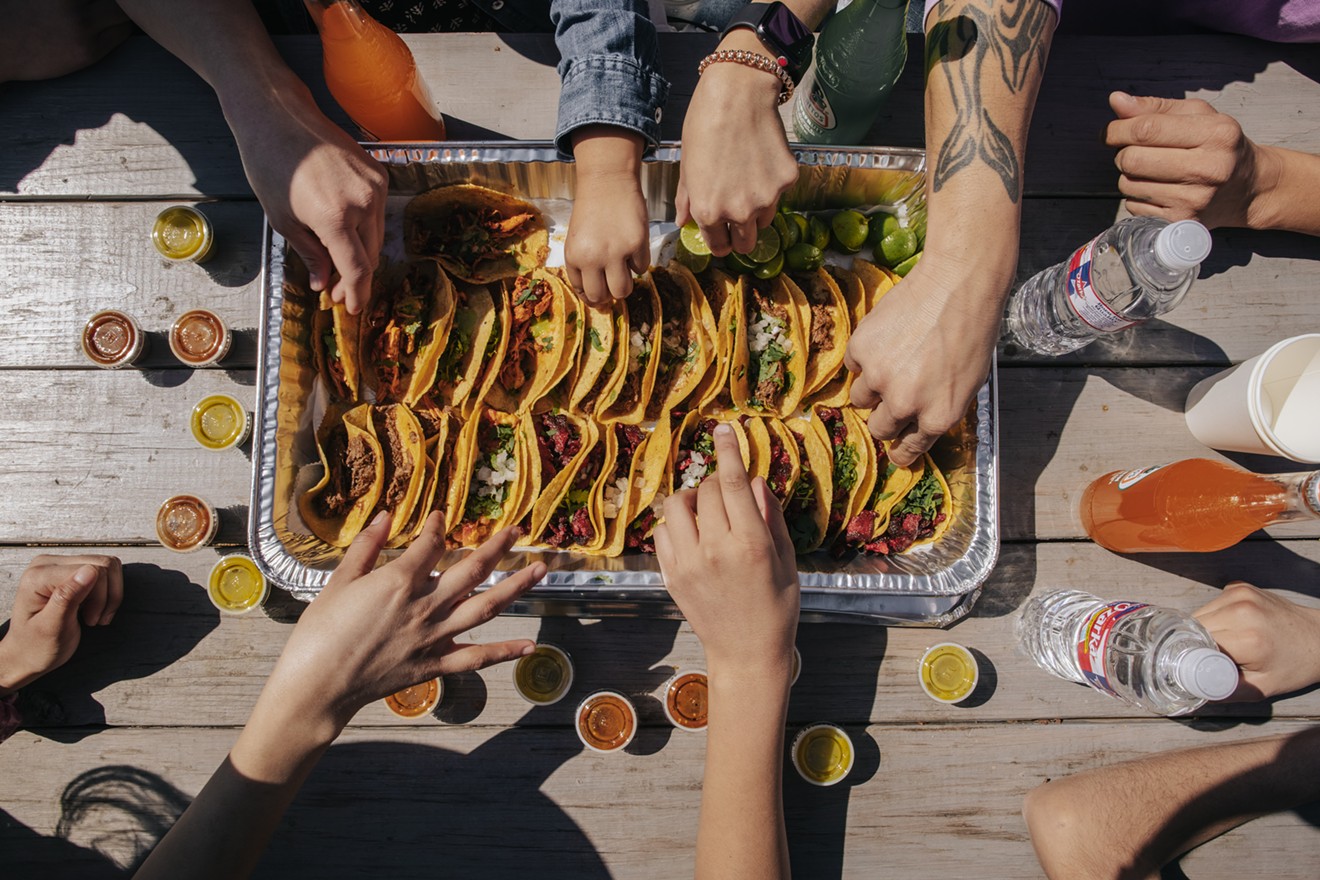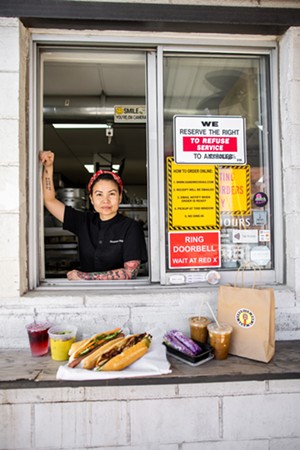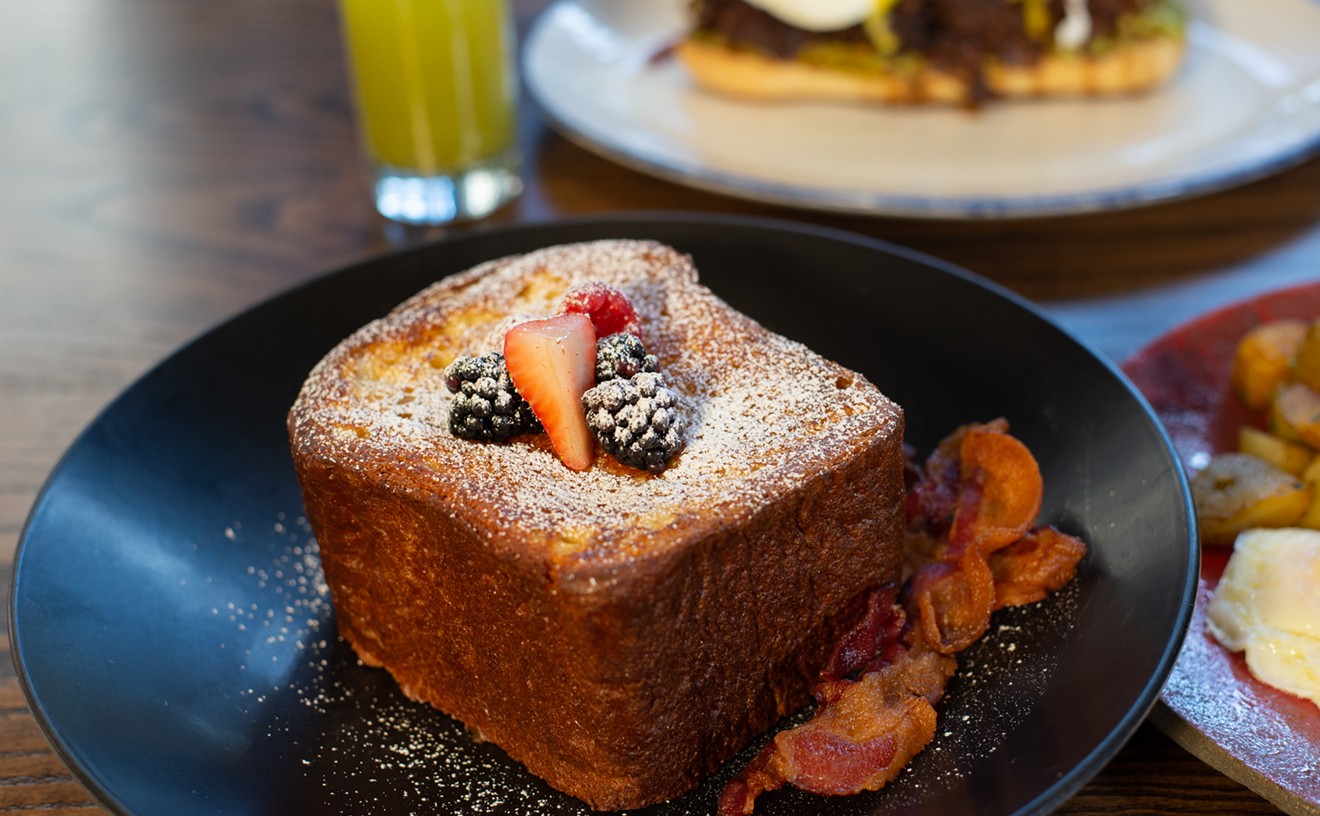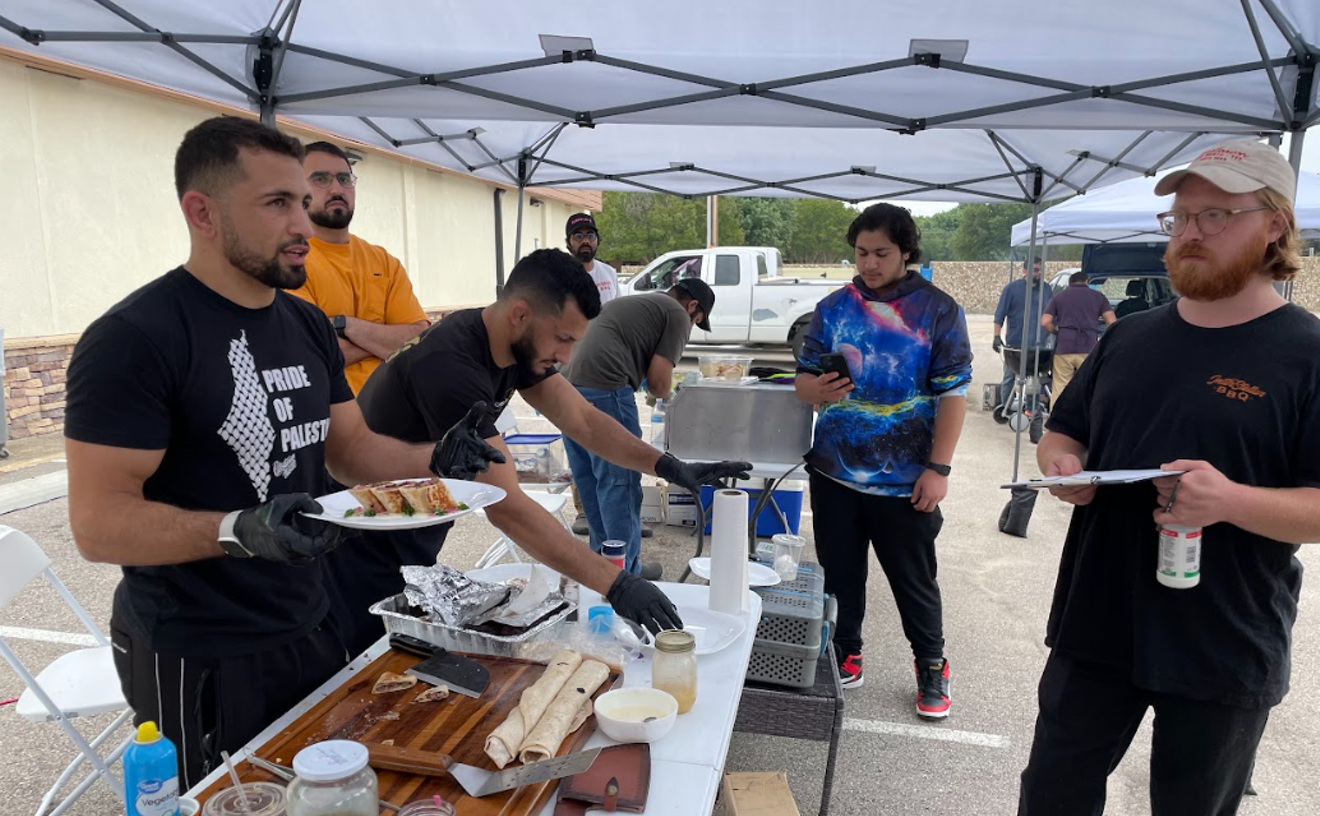It felt like every food lover in Dallas was there. In one line, I chatted with Texas Monthly taco editor José Ralat, and at the ice cream booth, D Magazine dining critic Eve Hill-Agnus worked serving scoops.
None of us knew this would be the last time the Dallas food community partied together. Two days later, Dallas County reported its first known case of COVID-19. On March 17, the county’s dining rooms and bars closed by public order.
A year later, the restaurant industry is still reeling from the effects of the pandemic: expensive safety measures in dining rooms and on patios, the added cost of stacks of takeout containers, sick or fearful employees, reckless customers and plummeting revenue.
Behind many of those problems is a common cause: government inaction. Financial assistance has been slow to arrive and hard to secure. Texas has yet to open its “rainy day” fund on the rainiest day in nearly a century. Deprived of bailout money, and as of March 10 forced to create virus-prevention rules without government backing, restaurants are stuck between customers who aren’t always right and politicians who don’t want to help.
The resulting year of strain turned restaurant workers and owners, increasingly, toward the realm of politics. Fed up with disrespect, delays and disease, the service industry got active and began speaking its mind. Now, more than ever before, the food business is using its popularity to call for change and to stand up for itself.

Political signage at Trompo signals a change in how restaurants are making their views apparent.
Kathy Tran
“This wasn’t a decision made for the small businesses like it was claimed to be,” Detour Donuts wrote on Facebook. “The burden of keeping a large group of people safe and accountable to each other is above our pay grade and public health is really not even our job.”
“We do not agree with the Governor’s decision,” the restaurant Homewood posted on Instagram. “The majority of the hospitality industry has not even received a vaccine, in fact that’s crazy.”
“Trying to stay positive but Governor Abbott just really made our anxiety kick into full gear, again,” CocoAndre Chocolatier posted on Facebook. “To be put in this position, it messes with your nervous system, my hands shake or I get angry that we have to do this for our safety of our employees and customers.”
Other forms of restaurant activism may have been less obvious or headline-grabbing but have been at least as important. Many Dallas-area bars and restaurants asked followers to submit complaints about the previous presidential administration’s tariffs on European wines, cheeses, whiskeys and other products, which drove up the cost of doing business. Last week, the Biden administration suspended the tariffs for four months and began negotiating a long-term deal.
In the months before the 2020 general election, a number of restaurants and breweries held voter registration drives. Registration cards were available at Trompo, Sandwich Hag, Pegasus City Brewery and other spots around town. On Sept. 22, National Voter Registration Day, restaurants like Smokey John’s BBQ, Cake Bar and Val’s Cheesecakes all hosted events under the banner Hungry4Votes. Trompo also displayed a poster with registration and mail-in voting deadlines. On Election Day, restaurants like Billy Can Can, Cookie Society and Marugame Udon gave discounts or freebies to customers with “I Voted” stickers.
At Trompo, owner Luis Olvera is now going even further, adding yard signs to his patio in support of two Dallas City Council candidates, Omar Narvaez and Chad West. Olvera says that when he first opened his acclaimed taco spot, he was afraid to speak up because he worried that it wasn’t proper.
“That’s how I was brought up: Voting is private and you have to stay open to every side,” he says. “But since 2016, a lot has happened, and it’s happened because we don’t use our voices.” He’s not the only restaurateur in his neighborhood to learn that lesson; down the street, tapas bar Sketches of Spain has two signs in support of West.
Olvera focuses on city politics because local turnout and voter awareness are so desperately low that small actions can make big differences. His business has also had four different City Council representatives over the years, and he’s seen the difference that a good council member makes.“The burden of keeping a large group of people safe and accountable to each other is above our pay grade and public health is really not even our job.” – Detour Donuts on Facebook
tweet this
“If I had an issue, I could reach out to Scott [Griggs], and his team and he would give me an actual answer, versus when I had the Singleton location, when I had issues and went to the city, they would just give me the runaround,” he says, tactfully not naming Narvaez’s West Dallas predecessor, Monica Alonzo. “It’s not just about who you know. It’s about who you elect. Before the snowstorm happened, I would physically see Chad [West] out doing stuff with the community, not even posting about it but just doing stuff. Whereas we have the Ted Cruzes who just do it for a photo op.”
Besides advocating for Narvaez and West, Olvera is looking for more ways to boost turnout in local elections.
“I’m still trying to figure out how I’m going to do it, but no matter who they vote for on May 1, I’m going to give out free tacos to anyone who votes,” he says. He’s considering a show-a-sticker-get-a-taco plan. “It’s not so much about giving tacos away. It’s about getting people to go vote. It’s also not about self-promoting. I don’t give two shits about promoting Trompo. I care about the community coming out and having a voice. A lot of people don’t know that they have a voice, and on the local level their voice matters so much.”
Other restaurant veterans have more national ambitions. For Reyna Duong, owner of Sandwich Hag, the ultimate goal is to rebuild a hospitality industry that treats workers with dignity and doesn’t bend to hostile customers. Outspoken advocacy is part of her restaurant’s identity; it’s even jokingly alluded to in the name.
“There is a very real fear of losing business when we can’t afford to lose even one customer,” Duong says. But she says impatience with anti-maskers is finally changing that: “At least within my circle of friends and the groups that I’ve mentored over the last several years, they’re seeing that it’s OK to speak up and speak out because you’re ultimately creating the community that you want to serve.”
Duong would like to see national political measures that could help small business owners, like universal healthcare. She investigated providing health insurance to her workers, but the cost is outrageous, on top of the mountain of bills a small restaurant must already pay. In other words, it wouldn’t just be better for workers if healthcare wasn’t tied to employment; it can be better for employers, too.
She’s not the only Dallas food worker with an eye on national political goals. Will Salisbury, a former chef at Bullion who left to start the Heard That Foundation after being treated for cancer, now advocates for wider healthcare access and higher minimum wages. One of his ideas is to band small, independent restaurants together into coalitions that could then share the cost of insurance policies.
Another of Salisbury’s big goals is inspired by his repeated run-ins with employers unhappy about his views: getting service workers the job security they need to speak freely.
“I get a lot of grief from prospective employers because of the advocacy work that I do advocating for higher minimum wages, for health insurance,” he says. “I get a lot of grief from these guys who are like, you’re basically calling us all out. It makes it difficult because I become someone who they don’t want to hire now.”“During a time of COVID, we need every single dollar. Except for asshole dollars! I need to make that clear.” – Reyna Duong, owner of Sandwich Hag
tweet this
Almost every restaurant job is right-to-work, a restriction on the possibility of unionization, and almost every worker can be fired for any reason.
“Right to work is right to fire people,” Salisbury says. “There’s no right to work. That’s just some doublespeak politician garbage.”
Building an industry in which workers can express their views and pay their medical bills while owners still make profits is a daunting task. The first step is to make customers and the general public understand the struggle restaurants face and how much worse that struggle has become in the pandemic.
“There’s invisible costs that customers don’t see,” Duong says. “Our mortgage. Every utility bill, not even including city of Dallas bills. We want to have an alarm system? There’s a permit fee for that. Every layer that goes into making a sandwich, no pun intended, there’s costs to that, but the only cost to the consumer is that they’re paying $11 for the dish that’s in front of them. They’re not seeing the invisible costs.”
A small minority of customers already complain about the $11 cost of a sandwich, even though Duong estimates that it ought to be more like $15. But those complaints just bring her back to her big theme: The customer is not always right.
Since the beginning, Sandwich Hag has had a rule it summarizes as “No Assholes,” a slogan the shop sells on official stickers. The rule is so well-known that Duong says many assholes don’t even bother going, but Sandwich Hag still turns away two or three customers each month for violating public health rules or generally being hostile, a process she calls “exhausting every time” but necessary to protect her staff and instill public respect for industry workers.
“During a time of COVID, we need every single dollar,” she says, and then quickly adds: “Except for asshole dollars! I need to make that clear.”
Of course, there is always a backlash. Customers are used to always being right, and they don’t like restaurant workers saying otherwise, about mask-wearing or anything else.
Lance McWhorter found that out when his restaurant in Tyler, Culture ETX, began enforcing mask and distancing rules. McWhorter is no liberal activist. A military veteran, Dallas native and tournament fisherman, he worked at some of Dallas’ best restaurants before moving to Tyler to open Culture ETX with his wife, Bailey.
“We’re very libertarian and freedom-minded, your right to choose, your right to self-determination,” McWhorter says. He’s conflicted on the government mask mandate; he dislikes all government mandates but compares it to the rule about returning shopping carts at a grocery. “I expect people to be smart enough to make their own decisions, but time and time again, people have proven that false.”
In Tyler, few other restaurants enforced mask and safety rules even when the mandate was in effect. The state government, in effect, made individual small businesses into bad guys in the eyes of the public.
“We’re really kind of forced to speak up,” McWhorter says. “It was hard enough when we were just standing by whatever decisions we took during the pandemic. But now it’s like, [Abbott] really put us in a position, every restaurant owner, I don’t care if it’s a super Republican hamburger joint or a fine dining liberal joint, he made it to where we had to be the enforcers again. He kicked us the ball and kicked us in the nuts. We still have to protect ourselves. We still have to take care of our own. It’s like Dad said to the kids, ‘Yeah, you can get a new PlayStation 5,’ and Mom says, ‘No, you maxed out the credit card at the strip club.’ And now Mom’s the bad guy. ‘Oh, Mom says we can’t get a PS5.’”
On Nov. 13, a small crowd of anti-mask protesters attempted to enter Culture ETX, then bombarded the restaurant with negative online reviews.
"He kicked us the ball and kicked us in the nuts. We still have to protect ourselves. We still have to take care of our own." – Lance McWhorter, Culture ETX, Tyler
tweet this
McWhorter replied bluntly online, using his business’ accounts to strike back: “We will not be bullied by two realtors, a housewife, a pyramid scheme dealer, a salon lady, and a flat earther named Phil...into NOT taking safety precautions that will protect me, my family, my crew, and my guests, because a handful of idiots that have never been to MY restaurant don’t like masks, and think that they are so high and mighty that they have the power to shut me down by telling other people who have never been here not to come here.”
He has no regrets about using strong words for people who likely would never eat at Culture ETX anyway. The restaurant’s regulars are grateful, and they’re numerous enough to keep the tiny dining room busy every night. Meanwhile, Culture’s haters stew in a toxic marinade of social media misinformation, emboldened by Abbott’s decision to end statewide mask mandates.
“They’ve got all the time in the world, and I’ve got just enough time to run my restaurant, run my life, be a good husband and tell these people to go screw themselves,” McWhorter says.
The argument that small businesses should not speak up about politics is, of course, a sham. When most people say “stick to serving food,” they mean that they do not wish to be confronted with opinions they do not hold. Business owners are exactly the kinds of people who should be speaking up about government regulations, bailouts, failures and delays. Workers are exactly the kinds of people who should be speaking out about work conditions, fair wages and public safety. Food industry leaders are exactly the kinds of people who should be calling for the end of punitive, profit-slashing tariffs on ingredients.
The question is not whether servers have the right to complain about customers whose actions endanger a restaurant employee’s health. The question is whether those virus-denying customers can tolerate a world outside of their control. Anti-maskers may not cover their noses, but in a way they cover their eyes, blind to their own entitlement.
This is the world in which restaurants are rethinking the definition of public service and printing No Assholes stickers. Shortly after our conversation, Duong posted a manifesto of sorts on the Sandwich Hag Instagram account, full of battle-cry slogans. “Our dignity is not on the menu,” it read in part, adding that the restaurant’s “No Assholes policy is the ultimate form of hospitality.”
The business of hospitality is quite literally giving: providing food, offering shelter, improving moods, increasing happiness. Yes, it’s a job, and the customers pay money, but who gets rich working in a restaurant? The key to success is to be hospitable, but in the pandemic year we’ve learned that many customers are exploiting the service industry’s generosity, taking and taking without giving any respect or courtesy in return.
And it’s not just the anti-maskers. Politicians, too, have exploited the service industry for too long, taking its tax dollars and abandoning its workers. Now, restaurateurs are ready to fight back.
For McWhorter, the last straw was February’s winter storm and power outage.
“We all lost an entire week’s revenue, and I know that’s nothing to a lawyer that sat on their asses in their home with power,” he says. “But we were closed for a week. We had 75% of our revenues, but we were paying 100% of the bills. The landlords never take a hit. The taxman never takes a hit. We have to stand up and go, ‘No, no more.’ This is bullshit. You can’t keep putting us in these positions.”
All across North Texas, over the past year, numerous restaurant workers have found their breaking points. They’ve seen the need to create their own communities, to tell customers they’re wrong, to educate voters, even to endorse candidates.
For many years, restaurants were afraid to fight for themselves, lest they fail to please their guests. Now the service industry knows how much its generosity has been taken for granted. The tables, as they say, have turned.















